
Zionism is a nationalist movement that emerged in the 19th century to enable the establishment of a homeland for the Jewish people in Palestine, a region roughly corresponding to the Land of Israel in Jewish tradition. Following the establishment of the modern state of Israel, Zionism became an ideology that supports the development and protection of the State of Israel as a Jewish state.
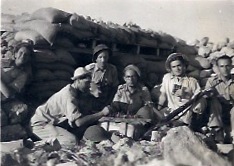
Killings and massacres during the 1948 Palestine war resulted in the deaths of hundreds of civilians and unarmed soldiers.

Benny Morris is an Israeli historian. He was a professor of history in the Middle East Studies department of Ben-Gurion University of the Negev in the city of Beersheba, Israel. Morris was initially associated with the group of Israeli historians known as the "New Historians", a term he coined to describe himself and historians Avi Shlaim, Ilan Pappé and Simha Flapan. Scholars have perceived an ideological shift in Morris's work and a departure from the critical scholarship of his New Historian colleagues starting around 2000 during the Second Intifada.
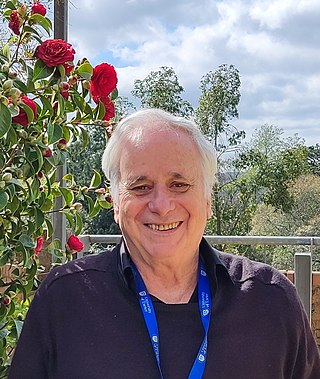
Ilan Pappé is an Israeli historian, political scientist and former politician. He is a professor with the College of Social Sciences and International Studies at the University of Exeter in the United Kingdom, director of the university's European Centre for Palestine Studies, and co-director of the Exeter Centre for Ethno-Political Studies.
Neo-Zionism is a right-wing, nationalistic and religious ideology that appeared in Israel following the Six-Day War in 1967 and the capture of the West Bank and Gaza Strip. Neo-Zionists consider these lands part of Israel and advocate their settlement by Israeli Jews. Some advocate the transfer of Arabs not only from these areas but also from within the Green Line.

Yoav Gelber is a professor of history at the University of Haifa, and was formerly a visiting professor at the University of Texas at Austin.
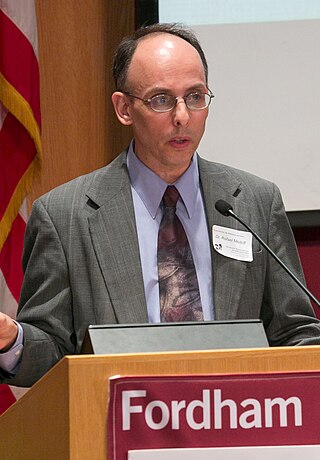
Rafael Medoff (born c. 1959) is an American professor of Jewish history and the founding director of The David Wyman Institute for Holocaust Studies, which is based in Washington, D.C. and focuses on issues related to America's response to the Holocaust.
Army of Shadows: Palestinian Collaboration with Zionism, 1917–1948 is a book published in 2004 by Hillel Cohen. It is about the sale of land and other co-operation between Arabs and Jews in Palestine before the establishment of the State of Israel.
Haim Watzman, is an American-born, Jerusalem-based writer, journalist, and translator.
Nur ad-Din Masalha commonly known in English as Nur Masalha is a Palestinian writer, historian, and academic.
Sheikh Musa Hadeib was the head of Mount Hebron farmers' party and a founder of the Zionist-supported Muslim National Associations. He was from the village of Dawaymeh near Hebron.
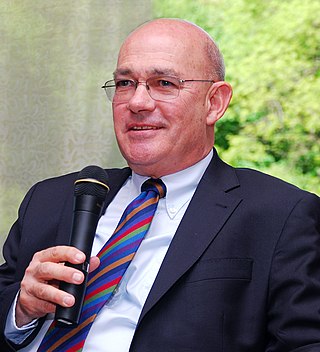
Tom Segev is an Israeli historian, author and journalist. He is associated with Israel's New Historians, a group challenging many of the country's traditional narratives.
The New Historians are a loosely defined group of Israeli historians who have challenged traditional versions of Israeli history, including Israel's role in the 1948 Palestinian expulsion and flight and Arab willingness to discuss peace. The term was coined in 1988 by Benny Morris, one of the leading New Historians. According to Ethan Bronner of The New York Times, the New Historians have sought to advance the peace process in the region.

Mustafa al-Khalidi was a Palestinian politician and member of the prominent Khalidi family. Between 1938 and 1944 he became the last Palestinian-Arab mayor of Jerusalem who held this position coupled with real authority.
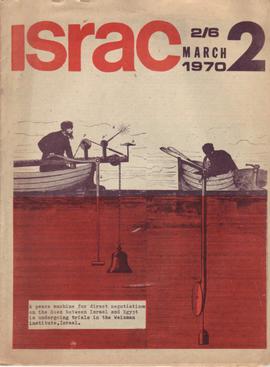
Matzpen is the name of a revolutionary socialist and anti-Zionist organisation, founded in Israel in 1962 which was active until the 1980s. Its official name was the Socialist Organisation in Israel, but it became better known as Matzpen after its monthly publication.

The 1948 Palestine war was fought in the territory of what had been, at the start of the war, British-ruled Mandatory Palestine. It was the first war of the Israeli–Palestinian conflict and the broader Arab–Israeli conflict. During the war, the British withdrew from the territory and the State of Israel was established, leading to it being known in Israel today as the War of Independence.

Palestinian nationalism is the national movement of the Palestinian people that espouses self-determination and sovereignty over the region of Palestine. Originally formed in the early 20th century in opposition to Zionism, Palestinian nationalism later internationalized and attached itself to other ideologies; it has thus rejected the occupation of the Palestinian territories by the government of Israel since the 1967 Six-Day War. Palestinian nationalists often draw upon broader political traditions in their ideology, examples being Arab socialism and ethnic nationalism in the context of Muslim religious nationalism. Related beliefs have shaped the government of Palestine and continue to do so.
Issa al-Hajj Suleiman Battat was a Palestinian Arab commander of rebels during the 1936–39 Arab revolt in Palestine based in the hills around Hebron. Battat was from the town of ad-Dhahiriya in the Hebron Subdistrict of the British Mandate of Palestine. He was a well-known commander in his home region and was suspected by the British authorities of involvement in the killing of British archaeologist J. L. Starkey in January 1938.

The Jaffa riots of April 1936, refers to a spate of violent attacks on Jews that began on 19 April 1936 in Jaffa. A total of 14 Jews and 2 Arabs were killed during the riots.
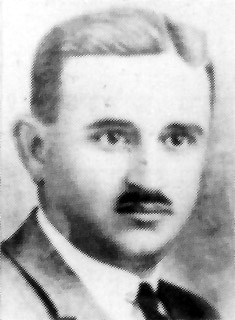
Zaki Alhadif was a Sephardic Jewish politician in Mandatory Palestine who served as the mayor of Tiberias.













